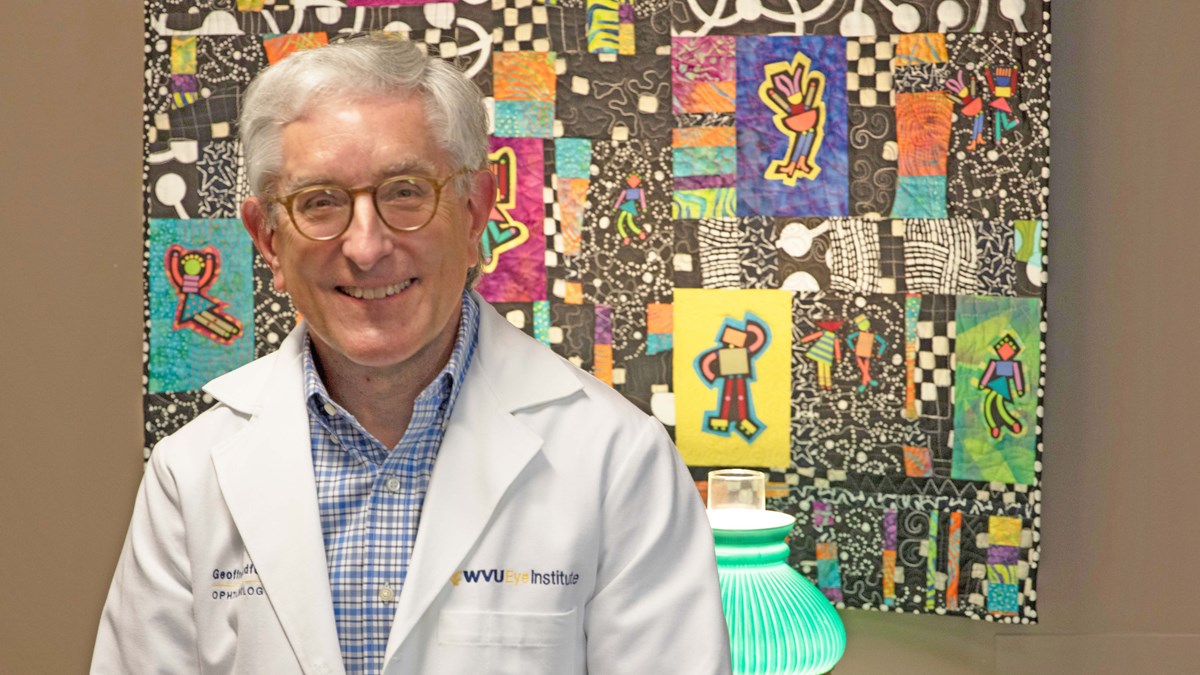Geoffrey Bradford, M.D.

“Having the opportunity to work with children, while always a privilege, also makes for an unpredictable workday. That type of atmosphere is quite conducive to having a spirited time in clinic, which is always a pleasant adventure.”
As a pediatric ophthalmologist, Geoffrey Bradford, M.D., has a passion for studying the eye while shaping the lives and minds of young people.
Dr. Bradford joined the faculty at West Virginia University in 1998 and is now a full professor in the Departments of Ophthalmology and Pediatrics. He said he appreciates the interactions that come along with working with young children and families.
“Being a pediatric ophthalmologist keeps me young,” Bradford said. “Having the opportunity to work with children, while always a privilege, also makes for an unpredictable workday. That type of atmosphere is quite conducive to having a spirited time in clinic, which is always a pleasant adventure.”
Bradford noted that this atmosphere is only heightened by the fact that much what is done in the field often has a positive outcome. He said that the type of issues patients often have are usually treatable, which allows children who come into the Eye Institute for either surgical or medical treatment to go on to have bright futures.
In addition to helping young patients, Bradford’s role at WVU also allows him to help young ophthalmologists. Bradford was named Residency Program Director in 2007, and he noted that working closely with the residents throughout their training is one of the best things about doing what he does.
“While residents are older than most of my typical patients, I find they still have a sense of excitement and curiosity when it comes to learning about the visual system,” Bradford said. “As program director, I often think back to my own time as a resident and how challenging, yet fascinating those days were. To this day, I enjoy seeing that same passion in our residents as well.”
Bradford said he cherishes the involvement he has with residents – from being there at the beginning of their training, to being a part of their graduation ceremony three years later.
“Being in a position where I get to play a role in their training, and then see them go out and become ophthalmologists in their own right is an ideal part of my career as far as I’m concerned.”